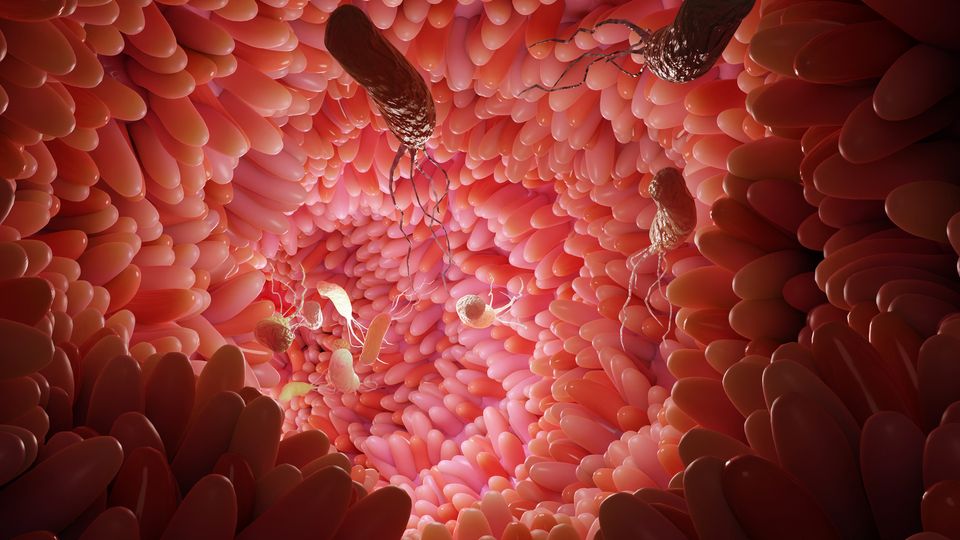How Gut Bacteria Influence Responses to Cancer Immunotherapy

Complete the form below to unlock access to ALL audio articles.
A new study has explored why some patients do not respond to cancer immunotherapy, demonstrating that specific gut bacteria can alter therapy responses and immune signaling in mouse models. The research is published in Nature.
Improving cancer immunotherapy
Cancer immunotherapies are designed to help our own immune systems to recognize and fight against cancers. Many different types of immunotherapies exist and have revolutionized the field by helping improve the survival of patients with specific cancers.
However, some patients gain no benefits from immunotherapy, and researchers are none the wiser as to why these patients do not respond while the same therapy is effective in others.
According to new research from Harvard Medical School and the Dana-Farber Cancer Institute, the makeup of patients' gut microbiomes may be a significant factor in immunotherapy response.
The findings of the research group, led by Dr. Dennis Kasper and Dr. Gordon Freeman, suggest that gut bacteria can affect the activity of two immune molecules, programmed cell death ligand 2 (PD-L2) and repulsive guidance molecule b (RGMb).
Previous work in the 1990s by Freeman and Dr. Arlene Sharpe, co-senior author of the study, focused on how cancer cells can exploit “immune checkpoints” to escape destruction by the immune system. They showed that cancer cells express proteins PD-L1 and PD-L2 on their surface, which bind to T cells bearing their receptor, PD-1. This prevents T-cell activation and inhibits their cancer-killing ability. Some immunotherapies, known as immune checkpoint inhibitors, take advantage of this by blocking this interaction and allowing T cells to remain active and attack cancer cells.
New clues have emerged from recent studies suggesting that gut microbes may play a role in influencing patient responses to immunotherapy, though the reasons have remained unknown.
Effects of the gut microbiome
In the current study, researchers isolated gut microbes from cancer patients, separating them into groups of those who responded well to immunotherapy and those who did not. Seeding mice with these gut microbes and treating them with immunotherapy resulted in the mice mimicking the corresponding treatment responses of the patients.
The researchers found that mice with microbes from the responders had lower PD-L2 levels expressed by a class of immune cells called antigen-presenting cells (APCs). These present abnormal proteins to T cells for them to seek out and destroy. On the other hand, mice with microbes from the poor-responder group had higher PD-L2 levels.
Want more breaking news?
Subscribe to Technology Networks’ daily newsletter, delivering breaking science news straight to your inbox every day.
Subscribe for FREEThe researchers next treated these mice with broad-spectrum antibiotics to kill their gut bacteria. The treated mice did not respond to PD-1-blocking immunotherapy, though they expressed higher levels of PD-L2, meanwhile, mice that did respond to immunotherapy had lower PD-L2 levels.
As blocking PD-1 was not successful, the researchers hypothesized that PD-L2 works not through PD-1 alone, but alongside another molecule – RGMb – that Freeman and colleagues previously showed had a role in immunity in the lungs.
When the researchers also blocked RGMb in the mice that did not respond to anti-PD-1 therapy, their numbers of cancer-fighting T cells rapidly increased. “The interplay between the microbiota and immune cells in the anticancer response just got clearer, and with the identification of RGMb as PD-L2’s molecular accomplice, we have another target for cancer immunotherapy,” Freeman said.
This interaction between RGMb and PD-L2 and the levels of these molecules also depended on the presence of specific microbes in the gut microbiome. Altering the gut microbiota composition in different groups of mice with cancer revealed that one organism, Coprobacillus cateniformis, suppressed PD-L2 levels and increased the efficacy of immunotherapy.
Mice with cancer whose intestines had been seeded with certain gut microbes had levels of RGMb on their T cells six times lower than animals with microbe-free guts and responded to anti-PD-L1 or anti-PD-1 therapy. In comparison, mice with depleted gut microbiomes did not respond to these treatments and had higher levels of RGMb.
Similarly, mice seeded with microbes from poor responders to immunotherapy also had higher levels of RGMb, suggesting that these patients harbor higher levels of RGMb on their T cells, which in turn interferes with their immune cells’ antitumor response.
Just one piece of the puzzle
Together, these findings suggest that specific microbial molecules can be harnessed in the form of small-molecule drugs to strengthen the immune system’s cancer-fighting ability as an alternative to antibody-based immunotherapy.
The authors also note that if these findings were replicated in humans, this research could go on to inform the design of new therapies and potentially improve patient outcomes for immunotherapy. However, they also highlight that these findings are likely only one piece of the puzzle and that there are many ways in which the immune system and microbiome interact in cancer.
“There are likely many other ways in which the microbiome can affect cancer immunity in general and cancer immunotherapy in particular,” said Kasper. “With this work, we’ve found a whole new way of looking at how the gut microbiota affects not only the efficacy of cancer treatments but cancer immunity in general.”
Reference: Park JS, Gazzaniga F, Wu M, et al. Targeting PD-L2/RGMb overcomes microbiome-related immunotherapy resistance. Nature. 2023. doi: 10.1038/s41586-023-06026-3
This article is a rework of a press release issued by Harvard Medical School. Material has been edited for length and content.



